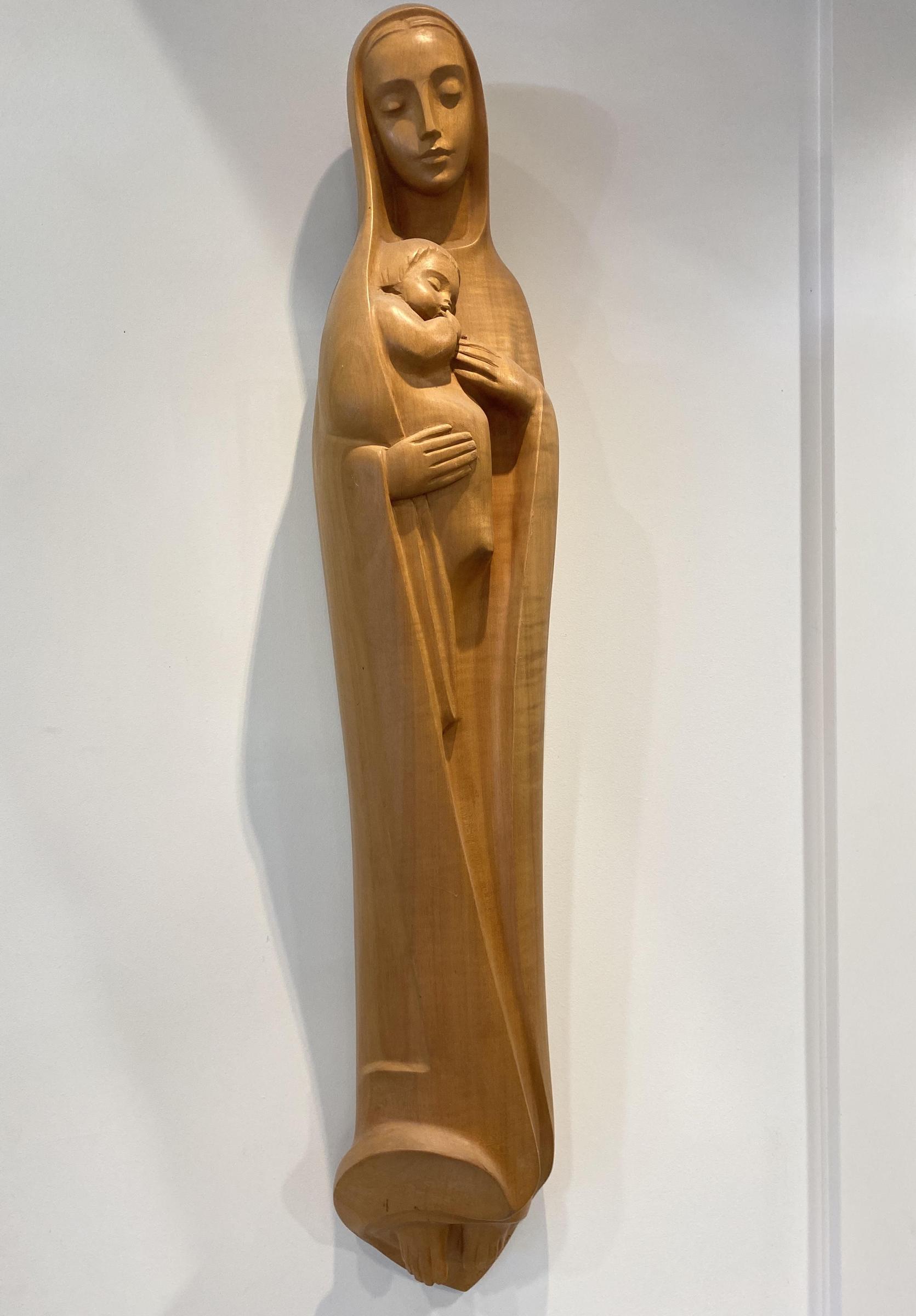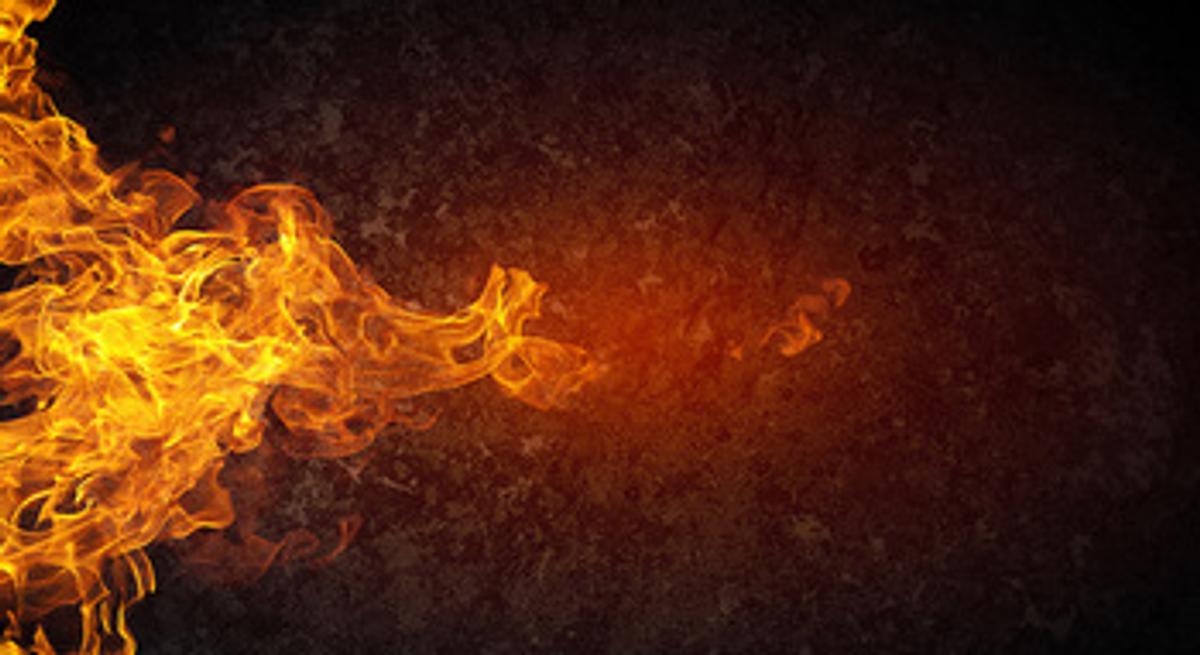Reflection

Pentecost: God is a verb
One of the first questions that kids always ask in religious education classes is, “What is God?” God is not a noun, God is a verb. God is not just one more being, God is what it
means "to be." When we answer any question about God, we speak mostly in analogies.
An analogous understanding of God
Catholics think about God in an “analogous” manner. An analogy is to say that God is like something that we can understand. God’s goodness is like ours, but not the same. God is not simply more good than we are; his goodness is categorically different. God is what it means to be good. God did not simply create the world. God is what it means to exist. The spirit of God acts upon us like wind, water and fire. These natural forces expand the notion of the divine presence beyond analogy with a human person. Think about how the Hebrew and Greek scriptures talk about God.
Wind
In the beginning when all was wild and chaotic, the “ruach Elohim,” God’s breath or spirit, moved over the waters. (Gen. 1.1-2). God breathed his spirit into Adam. The Pentecost story draws on the same imagery to describe the coming of the Spirit upon the disciples assembled in the upper room. The wind rushed into the room, whipping up their courage: “And suddenly there came from heaven a sound as of the rushing of a mighty wind, and it filled all the house where they were sitting … and they were all filled with the Holy Spirit and began to speak in other languages” (Acts 2: 2, 4). The Holy Spirit is like the wind, like breath, that moves, pushes and acts upon us. No one controls the wind or decides where it will blow next. You can only be attentive to the power of God, like a sailor taking her measure of the wind driving her sailboat.
Water
St. Augustine describes the Holy Spirit as the ocean. We are a sponge, floating and saturated, in the sea. In the Hebrew scriptures, the prophets speak of the out pouring of the Holy Spirit. Isaiah wrote, “I will pour water on the thirsty land, and streams on the dry ground. I will pour my spirit upon your descendants, and my blessing on your offspring. They shall spring up like a green tamarisk, like willows by flowing streams. (Isa. 44.3-4) In the Pentecost story. St. Peter quoted the Prophet Joel, “In the last days it will be, God declares, that I will pour out my Spirit upon all flesh, and your sons and your daughters shall prophesy, and your young men shall see visions, and your old men shall dream dreams.” (Acts 2.17-18, citing Joel 2.28-9) All of creation is dripping wet with divine presence, as if it were soaking in an ocean or a flowing fountain. Like water poured out from a pitcher, the life of the Spirit is poured into the prophets.
Fire
Fire symbolizes the presence of the divine in most of the world’s religions. Lamps and candles shining in the darkness are symbols of God. God is like a light in a dark place. In Exodus, a burning bush that burns but is not consumed alerts Moses to the Divine presence. (Exod. 3.7-14). A column of fire lead Israel by night. When the law was given to Moses, scripture recounts “Now Mount Sinai was wrapped up in smoke, because the Lord had descended upon it in fire.” (Exod. 19.18). In the Greek scriptures, John who was baptizing with water told the people that the greater one coming after him “will baptize you with the Holy Spirit and fire.” (Mt. 3.11). At Pentecost, after the great wind rushed in, “divided tongues, as of fire, appeared among them, and a tongue rested on each of them. All of them were filled with the Holy Spirit” (Acts 2.3-4). The "divided tongues, as of fire" ignited the faith of the disciples and they went out into the whole world.
The Nicene Creed: The Lord and giver of life
The language of fire, water and wind are analogies describing the Divine presence operating in the world. The Nicene creed calls the Spirit the “Giver of life,” vivificantem. The spirit of God moves created humans, filling them with more than merely existence. The Spirit is the giver of life. If you reduce your existence to the merely material, you are a heap of chemicals that feeds, reproduces and dies to make way for the next being in the evolutionary tree. Your gods are like you, mere matter. The “Lord and giver of life” elevates the nature of human beings. How do we know we are something more than an accidental heap of chemicals?
There is more to life than mere material existence. "Living" like God, is a verb!
https://stmarkov.com/news/pentecost

